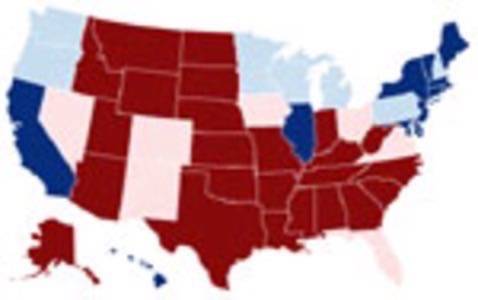Prediction markets are speculative markets in which investors put money into ideas that are tied to a future event — such as “Will the Lakers cover the spread?” The idea is that the more people who buy into an idea, the more likely it is to occur. This is an application of crowd wisdom. One such prediction market, Intrade, which has been in operation since 2001 and has 73,000 traders, is running a number of prediction contracts on the 2008 US presidential election. Are their predictions more or less accurate then good old fashioned phone surveys?

Prediction markets, according to Wikipedia, have generally been found to be “at least as accurate as other institutions predicting the same events with a similar pool of participants.” However, prediction markets are also subject to speculative bubbles and potential manipulation. Phone surveys were shown to be all over the map in terms of their predictions in the last presidential election — so they have potential problems as well. How do these two predictive methods stack up?
Intrade has contracts open for the electoral vote in each member of electoral college in the US. Based on that data, ElectoralMap.net has come up with a predicted map that’s updated every couple of days. With 270 electoral votes needed to claim the presidency, the Intrade prediction market currently has Obama winning 289 to 227, with 18 votes up for grabs.
The map at Electoral-Vote.com, which relies on the latest phone survey data, has Obama winning 287 to 227 with 24 votes in a dead heat. Both maps show similar states in play, though the phone surveys tend to show a more nuanced picture of how the country may be planning to vote (note: that could be due to how each site’s author is reading the respective data sets).
That said, it is still very early in election season, so you can expect both maps to change between now and November 4th. It will be interesting to see which of these methods is more accurate at ultimately predicting the outcome of the election, though it seems likely that the prediction markets will mirror the phone surveys because that’s one of the major sources of information about how each state may vote for the investors.

















